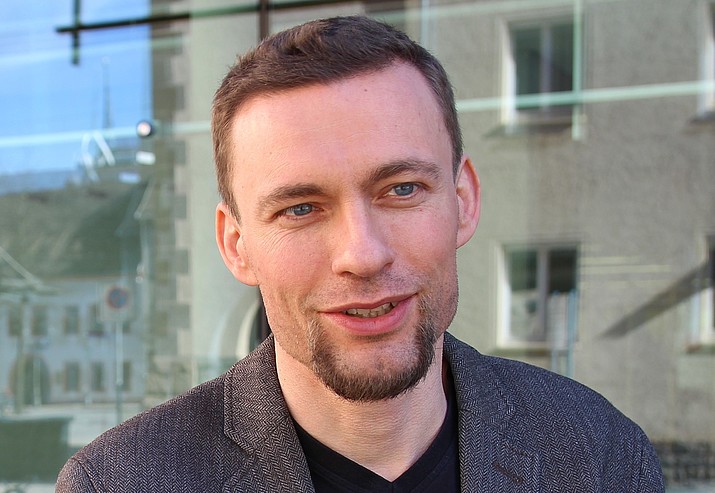University didactics training courses provide information on AI tools, their integration into university teaching and how students benefit from them. University didactics speaker Stefan Müller gives examples of areas of application.

What is actually behind these AI tools that are currently on everyone's lips? In an interview with Daniel Winkler, Stefan Müller, lecturer in higher education didactics at the University of Applied Sciences Zwickau, explains how they can be integrated into university teaching and how students can benefit from them.
Information on further training in higher education didactics at the HSZG on this topic can be found below.

Daniel Winkler: Dear Stefan, in your course on October 26, 2023 in Görlitz, you will be testing AI tools to support academic work. Can you give us some examples of these tools and their areas of application in an academic context?
Stefan Müller: In the course, we look at how students work academically and which AI tools can usefully support academic work. We have some initial experience of this: together with the students, we have tested in which phases of the research process AI tools can be used. For example, we used text generators such as ChatGPT, Bard and Bing Chat. We also used research tools such as Elicit and Aomni. The students tested Deepl Write and ChatGPT to improve the linguistic aspects of their work. In the course, we decide together with the participants whether the focus is more on the AI tools themselves or on their didactically meaningful use in teaching.
An important aspect of your course is maintaining scientific principles when integrating AI tools into university teaching. What challenges do you see in this context and how do you deal with them?
Students often find it difficult to familiarize themselves with a topic and adhere to scientific standards. Overcoming these challenges is what we call student learning. With the advent of generative AI tools, students can partly bypass these learning activities and produce scientific mock results. On the other hand, AI tools provide an additional layer for the operationalization of scientific principles. Therefore, a skillful didactic setting is required in which students learn to work scientifically through the use of AI.
How can students benefit from the use of AI tools in a scientific context and what skills should they develop to successfully use these technologies?
Given the rapid technological advances, it is essential to prepare our students for an AI-supported living and working environment. The academic environment serves as a training ground where students can practice and refine their use of these tools. I believe that universities have a responsibility to maintain high scientific and ethical standards: What we do serves the (academic) community and the preservation of human flourishing. In the best-case scenario, our graduates will carry their skills in dealing with AI technology and their critical thinking along scientific and ethical criteria into society.
Thank you, Stefan, for your insight into the topic. We look forward to your university didactic training on October 26 in Görlitz.
AI tools and the scientific work of students
When: 26.10.2023, 14:00 to 17:15
In the course, AI tools to support scientific work will be tested. Didactic settings and learning paths will be outlined in which AI tools can be used in compliance with scientific principles and in preparation for scientific or professional practice.
Further information in the event information.
Stefan Müller has been a consultant for university didactics at the West Saxon University of Applied Sciences Zwickau since 2011 and has also been working in university didactics in Saxony since 2022. He conducts university didactics courses, advises university lecturers, evaluates courses and implements innovative teaching and learning projects together with professors. He also supports students in developing their study skills. Stefan Müller has been working in teacher training since 2004. Prior to this, he worked in therapist training and as a vocational school director. His academic roots lie in sports science and business administration (Master's degree).
The programs of Hochschuldidaktik Sachsen (HDS) are aimed at lecturers of different levels of experience, status groups and departments who want to deal with selected topics of higher education didactics in a structured way and/or simply want to make their commitment to teaching visible.
The offer of the Zittau/Görlitz University of Applied Sciences as organizer can be found here.
You can find the entire offer and registration for the university didactics training courses here.